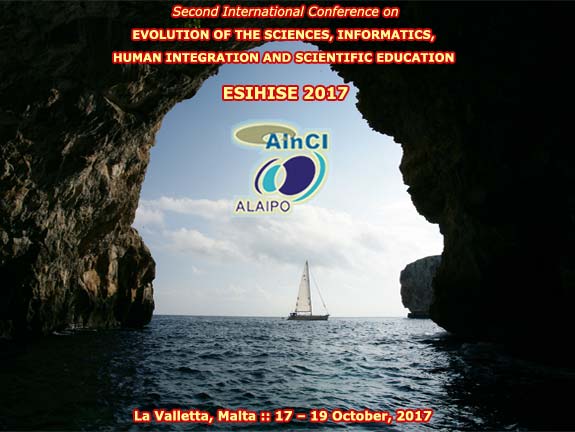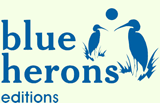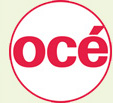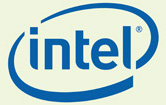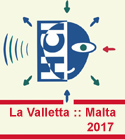Second International Conference on
Evolution of the Sciences, Informatics, Human Integration and
Scientific Education
( ESIHISE 2017 )
:: La Valletta – Malta ::
October 17 – 19, 2017
| Home |
| Topics |
| Important Dates |
| Paper Submission |
| Organization |
| Program |
| Registration |
| Publications |
::. BBK .::
Birkbeck University of London
UK
::. FUN .::
Future University Hakodate
Japan
::. HAN .::
HAN University of Applied Sciences
the Netherlands
::. IIMROHTAK .::
Indian Institute of Management Rohtak
India
::. ITB .::
Institute of Technology Bandung
Indonesia
::. IUAV .::
University of Venice
Italy
::. KETTERING .::
Kettering University
USA
::. MCU .::
Ming Chuan University
Taiwan
::. MJU .::
Myongji University
South Korea
::. MSU .::
Moscow State University
Russia
::. NUU .::
National United University
Taiwan
::. NYU .::
New York University
USA
::. PURDUE .::
Purdue University
USA
::. SHEFFIELD .::
University of Sheffield
UK
::. SORBONNE .::
Paris Sorbonne University
France
::. TSINGHUA .::
Tsinghua University
China
::. U-AIZU .::
University of Aizu
Japan
::. UBA .::
Universidad de Buenos Aires
Argentina
::. UCC .::
University College Cork
Ireland
::. UCL .::
University College London
UK
::. UCR .::
Universidad de Costa Rica
Costa Rica
::. UEF .::
University of Eastern Finland
Finland
::. UHK .::
University of Hong Kong
China
::. UIOWA .::
University of Iowa
USA
::. ULB .::
Free University of Brussels
Belgium
::. UM .::
University of Malta
Malta
::. UMD .::
University of Michigan-Dearborn
USA
::. UNC .::
Universidad Nacional de Córdoba
Argentina
::. UNCU .::
Universidad Nacional de Cuyo
Argentina
::. UNED .::
Universidad Nacional de Educación a Distancia
Spain
::. UNIBO .::
Università di Bologna
Italy
::. UNIGE .::
Università degli Studi di Genova
Italy
::. UNILJ .::
University of Ljubljana
Slovenia
::. UNIMIB .::
University of Milano–Bicocca
Italy
::. UNIMOL .::
University of Molise
Italy
::. UNPA .::
Universidad Nacional de la Patagonia Austral
Argentina
::. UNSE .::
Universidad Nacional de Santiago del Estero
Argentina
::. UofO .::
University of Ottawa
Canada
::. UOI .::
University of Ioannina
Greece
::. UPR .::
Universidad de Puerto Rico
Puerto Rico
::. US .::
Universidad de Sevilla
Spain
::. USC .::
University of Southern California
USA
::. UTN .::
Universidad Tecnológica Nacional
Argentina
::. UWI .::
University of the West Indies
Jamaica
::. VMMI .::
Virtual Maastricht McLuhan Institute
the Netherlands
::. WASEDA .::
Waseda University
Japan
::. WSU .::
Wayne State University
USA
HOME |
|
Introduction and Topics, Deadlines and Program Committee 1. Introduction and Topics The modernization of the sciences and education is and will be one of the cornerstones for all the inhabitants of our planet. Those who from the 1980 have been behind this issue have been direct and indirect witnesses of great breakthroughs and some recoils. These ups and downs are due to exogenous or endogenous factors, to the daily reality of the formal and factual sciences. Many of those factors are beyond the control of all those scientists and professors, who, in a modest and honest way, collaborate in the development of the quality of life of all humankind. An evolution or revolution which dilutes narrows the digital divide (i.e. between users with a paid access to non-original multimedia content through a set of ultra-modern mobile devices; and users with a free access to creative multimedia content through a set of the classical non-mobile devices) among the human beings whose theoretical and practical research focuses on the cornerstones of the current population pyramid, as well as for the future generations oriented at the use of the latest interactive technologies in the communicability and quantic-nanotechnological-self-sufficient era. This is an era in which the universities, for example, have focused on accelerating the statistic numbers of degrees issued in relation to the registered students or the spot they take in the listing of the best colleges within and without their borders. In this regard there have been a myriad measurement tables with different qualitative parameters sometimes contradictory with each other if one considers the whole global village described by McLuhan. This phenomenon is an exported fashion to the most remote corners of the planet, where the educational and scientific priorities, obviously, are totally different from the wild quantification of knowledge. If this tendency of scientific and educational knowledge is established, it is important to ask some rhetoric questions such as:
This tiny set of questions, whether it is in a latent or manifest way, shows us the behaviour of millions of people daily. Questions that should be enlarged as we talk about the modernization of the sciences and education, as a kind of infinite semiosis, not only to grasp the current state, but also with a sight intent on the short, middle and long term for the scientific education of the future generations. The current international conference is intended to be an open space for the interchange of original ideas, valid theories, innovating experiences, results obtained, learned lessons and future research works, in the educational, scientific and industrial field. The exchange of knowledge, training, research and development in this triad encounter the following main and secondary issues, which are listed as follows. All contributions –papers, workshops, demos, research-in-progress, posters, doctoral consortium, etc., should be of high quality, originality, clarity, significance and impact. In the current international conference it is demonstrated how with a correct integration among professionals of formal and factual sciences interesting research lines in the following subjects and other main areas are solicited on, but not limited to (alphabetical order): :: Modernization of the Sciences and Education • Educational Research :: Science of Information and Computer Information Systems • e-Science :: People, Science and New Technology • Cultural Systems, Employment and Human Integration Many conferences are focussed on specific aspects of education, computer science, humanistics studies, multidisciplinary approaches, etc. At such large conferences students are often marginalized or relegated to poster sessions, for instance. The ALAIPO and AInCI conferences, workshops, symposiums, etc., are not a very big scale and aim to promote dialogue between established professors and graduate students working on new directions. Hence topics from the whole range of modernization of the sciences and education, research and development, knowledge transfer, computer information systems, new challenges in university/tertary education, human and social factors, democratization of the scientific information and the new technologies, original and creative contents for scientific learning, among others are welcomed. Last year’s symposiums, workshops, conferences, etc., organized by ALAIPO and AInCI, for instance, included papers on the topics. An extensive listing connotes and reflects the requirement and also skill necessary to find intersection zones of the disciplines among the different domains, fields, and specialities; which at the same time potentially boosts and merges the formerly different scientific views. Finally, all submitted research works will be reviewed by a double-blind (at least three reviewers), non-blind, and participative peer review. These three kinds of review will support the selection process of those that will be accepted for their presentation at the international conference. Authors of accepted research works who registered in the conference can have access to the evaluations and possible feedback provided by the reviewers who recommended the acceptance of their contributions, so they can accordingly improve the final version of their research works. Best regards, Francisco V. Cipolla Ficarra (Chair - coordinator) ALAIPO: Asociación Latina Interacción Persona-Ordenador –Latin Association of HCI (www.alaipo.com) and AINCI: Asociación Internacional de la Comunicación Interactiva –International Association of Interactive Communication (www.ainci.com). Address: Via Tabajani, S. 15 (7) - 24121 (Bergamo) Italy :: c/ Angel Baixeras, 5 - AP 1638 - 08080 (Barcelona), Spain. Email: info@alaipo.com :: info@ainci.com P.S. If you wish to be removed from this mailing list, please send an email to info@ainci.com or info@alaipo.com with remove in the subject line. Thanks.
2. The events have the following deadlines: Works Submissions: Closed. Conference: October 17 – 19, 2017
3. Program Committee: :: Francisco V. Cipolla Ficarra (chair - coordinator) Demo Session, Poster Session, Workshop Session, Parallel Session, Research in Progress and Doctoral Consortium: Annamaria Poli. Università degli Studi di Milano Bicocca (Italy), Daniela Tamburini. Università degli Studi di Milano Bicocca (Italy), Diego González (IMM - National Research Council, Italy), Kaoru Sumi. Future University Hakodate (Japan), Wen-Yuan Jen. National United University (Taiwan), Roberto von Sprecher. Universidad Nacional de Córdoba (Argentina), and Miguel C. Ficarra. AInCI and ALAIPO. Honorary Committee: :: Alejandro Frangi. University of Sheffield (UK) Scientific Committee: :: Alejandro Frangi. University of Sheffield (UK)
|
|
| © 1997 - 2017 ALAIPO & HCI Lab | ||||
|---|---|---|---|---|

